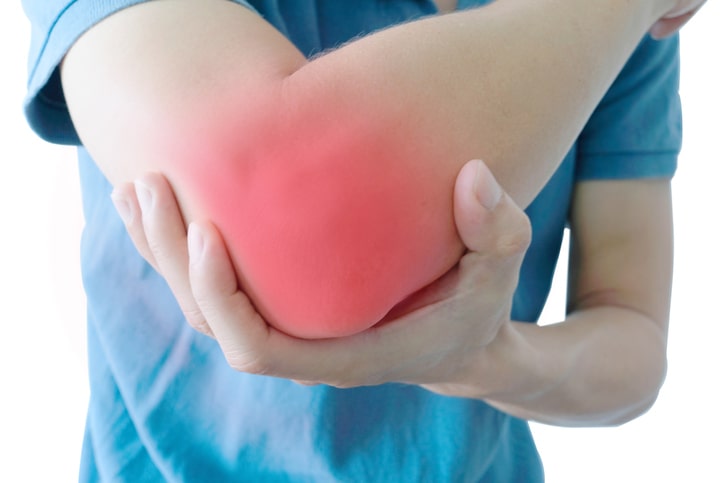
What Is Cubital Tunnel Release?
A type of surgery performed to correct cubital tunnel syndrome is referred to as cubital tunnel release. The syndrome is a condition in which an important nerve, called the ulnar nerve, is compressed. This ulnar nerve is located in the elbow.
When you come to our clinic with pain in your elbow, we’ll help you come up with a plan to experience quick relief as we take you to our physical therapy suite. You’ll enjoy our compassionate care as we take time to examine your arm and ask you questions about your symptoms and the cause of your pain. If we discover that you have cubital tunnel syndrome, our team of specialists at OrthoBethesda in Bethesda, MD, will recommend cubital tunnel release.
It’s important to note that the treatment plan for one patient won’t always be the best for another. We’ll give you personalized care and recommend treatment that meets your unique needs.
What Are the Signs of Cubital Tunnel Syndrome?
Some of the typical symptoms involved with this condition include:
- A tingling sensation
- Numbness in the fingers
- Pain in the pinky and ring finger
- Pain on the inside of the hand
Most of these symptoms will show up more often at night and when you bend the elbow or rest on it for a long time. In many cases, the symptoms of this condition occur gradually until they become increasingly painful, prompting you to come in for treatment. It’s important to seek medical help early to avoid permanent damage to the ulnar nerve.
What Can Cause Cubital Tunnel Syndrome?
Compression of the ulnar nerve can be caused by a wide range of activities, injuries or diseases. Some of the most common causes of cubital tunnel syndrome follow:
- Repetitive elbow flexing: Performing repeated flexion movements of the elbow during sports or during your daily work can cause the issue.
- Injuries: Tissue swelling may come up due to dislocations, fractures or trauma, causing compression of the ulnar nerve.
- Working at a desk: Leaning on the elbows while working for a long time can irritate the ulnar nerve.
- Other medical conditions: When tumors, cysts, ganglion and bone spurs form in the cubital tunnel, they can irritate the ulnar nerve.
Are There Conservative Treatment Options?
There are conservative treatment plans for this condition. We may recommend these options to treat the symptoms after carrying out a thorough examination of your arm. If there’s no nerve damage and your arm shows no sign of muscle depletion, we’ll use conservative treatment options.
You may wear a splint or brace at night while you sleep to keep your elbow straight. You can also use a towel to wrap your arm and tape it to keep it in place. However, if these treatment options don’t resolve the condition — or if there’s severe compression on the nerve — your doctor may recommend cubital tunnel decompression surgery.
Can Cubital Tunnel Return After Surgery?
Normally, cubital tunnel syndrome doesn’t return after surgery. That said, results may vary depending on the severity of the condition before the surgery was performed. The numbness should be resolved after surgery, but if the nerve was severely damaged, the surgery will be carried out for the purpose of preventing further damage while trying to restore as much sensation as possible to the fingers.
Recovery After Cubital Tunnel Release Surgery
The recovery time varies per individual, but full, unrestricted use can be achieved within two to three months after the surgery. Early motion should not include pushing, pulling or lifting anything heavier than a pencil for at least 6 weeks after the surgery.
Further Reading
What to Wear and What Not to Wear During Surgery
What Can You Do to Prevent Golfer’s Elbow?
Schedule an Appointment
 ">
">
Learn More About Cubital Tunnel Release at OrthoBethesda
If you’re experiencing pain in your elbow, whether it’s mild or severe, we invite you to contact OrthoBethesda. Give us a call now at (301) 530-1010 to book an appointment with one of our orthopedic doctors who specializes in taking care of the hand. We’re ready to offer you personalized care to meet your unique treatment needs.
